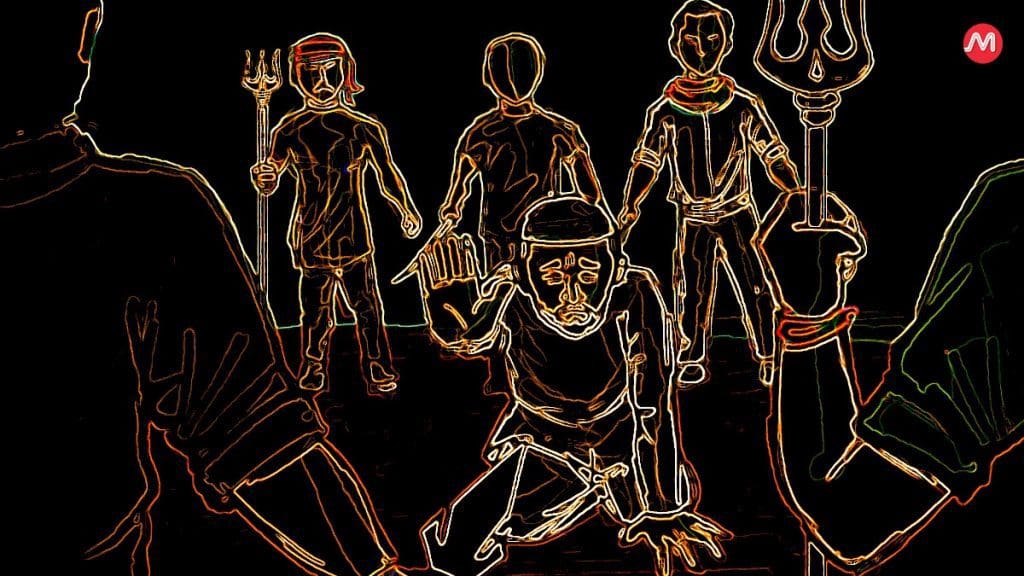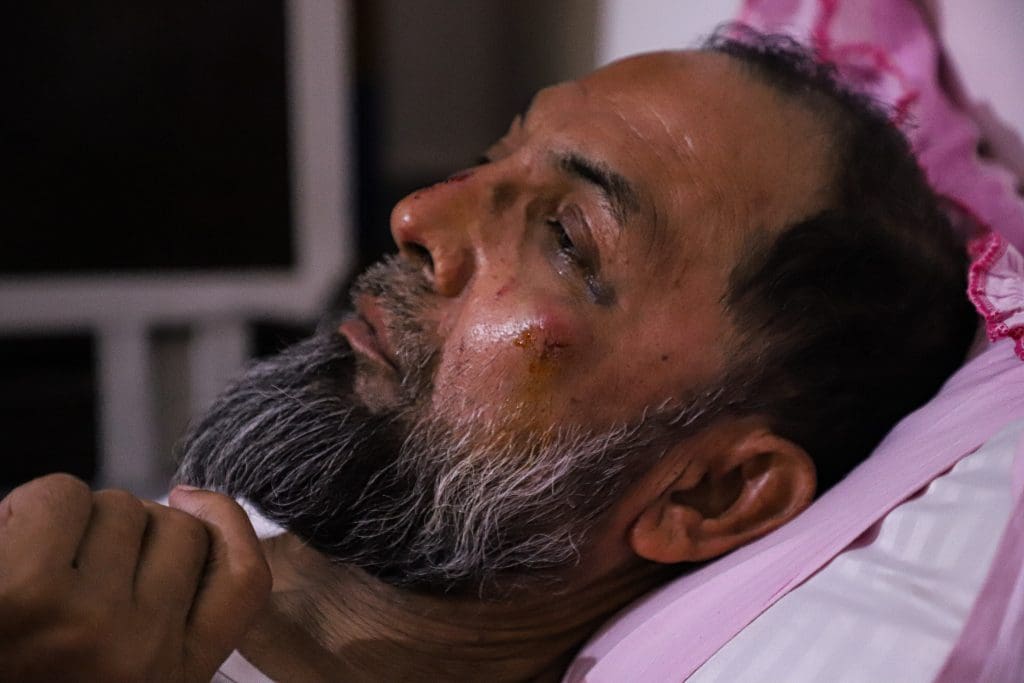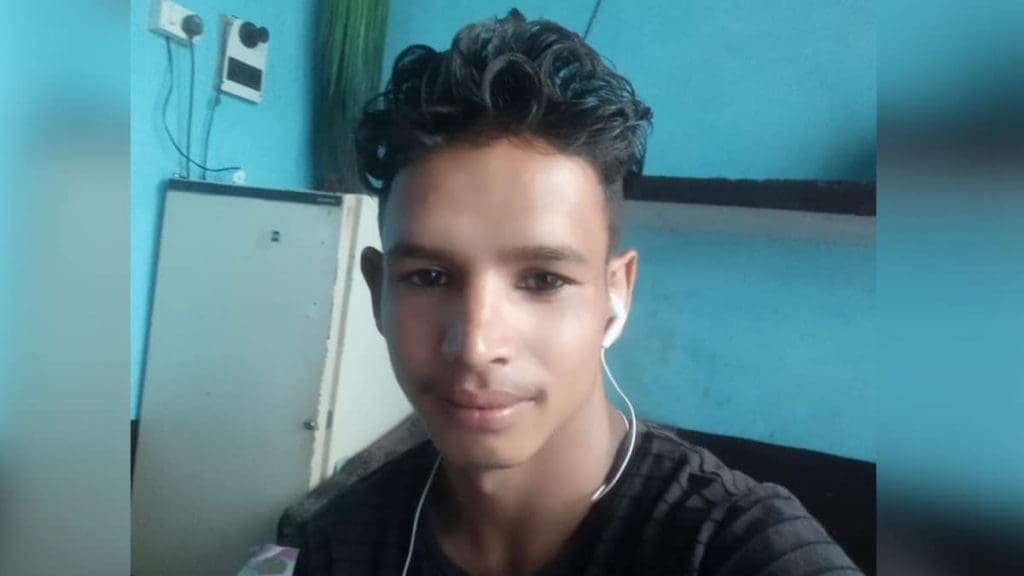
On 23 December, 2021 Bajrang Dal workers in Moradabad allegedly attacked a shop of a Muslim man named Shabu Khan, creating a ruckus and raising slogans of ‘Har Har Mahadev’ and ‘Jai Shree Ram’.
On 31 October, 2021 a cloth seller Aamir Khan was beaten up with lathis in Aligarh for refusing to chant ‘Jai Shree Ram’
On 23 September, two Muslim men were severely beaten for carrying meat in Mathura.
All of these incidents were documented in a disturbing series of videos that quickly went viral. The videos all have one thing in common – they show Muslim vendors and small business owners in Uttar Pradesh being assaulted because of their religious beliefs.
These three incidents are among a slew of anti-Muslim hate crimes that occurred in Uttar Pradesh over the course of two months.
We’ll look at the reasons for the rise in anti-Muslim hate crimes in Uttar Pradesh throughout this article.
The article will cover:
1. Impunity giving rise to anti-Muslim hate crimes
2. Inaction by the police in many cases
3. Rising cases of hate speech – Role of religious leaders
4. State supported religious nationalism
5. Big tech fail to curb rampant hate speech
Impunity giving rise to Anti-muslim crimes
A 62-year-old man, Kazim Ahmed, was attacked by three Hindu youths in Noida in July, 2021. Kazim Ahmed, told Maktoob that he was brutally beaten, harassed and attacked by the group while he was on his way to Aligarh to attend a relative’s wedding. The assailants targeted him because of his visible “Muslim identity”, and they also used anti-Muslim slurs against him.
“While I was waiting for a bus to Aligarh in Noida Sector-37, some people standing nearby in a white car called out to me, when I went, they dragged me inside the car, rolled up the windows, and began beating me before I could ask or say anything,” he explained.


Six months have passed and no arrests have been made yet.
Two months later, on his way back from work, 22-year-old Muslim boy Samir was lynched by right-wing Hindus in Shamli district.
Parvej, Samir’s cousin, claimed the assailants lynched him because of his “Muslim identity.”
“On his way home from work, some boys apprehended him near the Shamli bus stop. They killed him by attacking him with sticks and iron rods,” Parvej claimed.


The Uttar Pradesh police filed an FIR against the accused under sections 302,147, and 148 of the Indian Penal Code. According to the family, only one arrest has been made thus far.
According to DOTO (Documentation of the Oppressed) Database, a non-profit documentation centre – documenting hate crime against religious minorities in India – In the last six months, at least 20 anti-Muslim hate crimes have occurred across 15 districts in Uttar Pradesh. In total, 11 of these incidents are being investigated, 8 are not being investigated, and one incident’s investigation status is unknown.
Inaction by the police in many cases
While communal violence has been an unfortunate reality in post-partition India, data shows that hate crimes against Muslims have increased since the BJP government took power in 2014.
Additionally, after the Yogi government came to power in 2017, at least 212 hate crimes against Muslims have been reported in Uttar Pradesh, according to Doto Databas.
For example, in the Kazim Ahmed’s case – Sherwani Aamir, Kazim’s nephew, claims that police not only refused to file the complaint, they went further to pressure the victim’s family to take the case back.
“We were pressured by the police to take the case back, and when we went to file the police complaint, we were threatened, but we didn’t back down and stood our ground, and no one has been arrested in the case yet,” Sherwani Aamir said to Maktoob.
According to Kazim’s family, they have no idea whether or not the police have filed an FIR.
The perpetrators frequently enjoy impunity as a result of police complicity and disregard for law and order, which results in the perpetrator’s failure to be punished.
SR Darapuri, former Indian Police Service (IPS) officer, is a prominent face of protests against the CAA in Uttar Pradesh. The police had put up several billboards in Lucknow identifying those accused of using violence during the December protests against the Citizenship (Amendment) Act.
Darapuri was also among those whose photo and details have been put up on the hoardings.
“The state did it to silence our voices, to smear our images, to demoralise us; in no civilised country could a government have done this; putting our photos on hoardings was a “unique” step taken by the Yogi government,” Darapuri told Maktoob.
As per Darapuri, the police’s role as enablers of communally motivated hate crimes extends beyond ignorance and tacit support.
“Police have been given open-sanction, because suppression can only be achieved through an agency. Minorities are oppressed as part of a political agenda; Muslims and Christians are targeted in order to establish Hindutva superiority,” says Darapuri.
According to Darapuri, Hindutva groups are given full authority to target minorities, which is state-sanctioned.
“Police is one of the government’s most powerful tools, the “fringe-elements” are non-state actors supported by the state,” Darapuri added.
Concerning religious impunity, Darapuri stated that the state chief asserts his religious identity, thereby indirectly promoting anti-Muslim speeches.
Rising cases of hate speech – role of Hindu leaders
The current regime is ideologically aligned with the Rashtriya Swayamsevak Sangh (RSS). The RSS is a Hindu supremacist organisation that seeks to overthrow Muslims. As a result, the deterioration of minority conditions must be understood in the context of the current government.
Over the last few months, Hindutva religious leaders such as Yati Narsinghanand and Swami Prabodhanand have given genocidal speeches and called for arms against Muslims, but Yogi Adityanath has not taken action or condemned the act.
Hindutva activists and so-called religious leaders took an oath at Haridwar’s “Dharam Sansad” to turn India into a “Hindu rashtra”.
Following calls for genocidal speeches at the Haridwar hate conclave “Dharam Sansad,” Hindutva leaders Yati Narsinghanand and Swami Prabodhanand returned to UP and delivered another genocide speech in Ghaziabad on 2 January, 2022.
“We will stand up against every jihadi in india and clean the country of their presence, whoever has understood the Quran is a jihadi,” said Swami Prabodhanand Giri in UP’s Ghaziabad.
Even after reporting it to the police, no action has yet been taken.
Despite actively participating in the formulation of the 1948 Genocide Convention and ratifying it on 27 August 1959, India has not enacted any specific law dealing with genocide, it has taken no such steps pertaining to Genocide under its International and Constitutional obligation even though India has so may legislative structures to choose from.
And by failing to take action against Hindutva leaders for their genocidal threats, India is breaching its terms.
While vigilante groups such as the Bajrang Dal and the Hindu Yuva Vahini engage in violence against Muslims on the ground, religious leaders such as Yati Narsinghanand and Swami Prabodhananda have a different, yet significant, pull; through their hate speeches, they reach out to large audiences who they hope to radicalise.
When their genocidal speeches go viral on social media, more radicalised youths come out in support and openly express their hatred for minorities.
When vigilantes see that no action has been taken against previous crimes, it gives them more freedom to harass minorities with impunity; the state’s inaction is to blame for the rise in anti-minority hate crime.
The lack of action against these hate speeches demonstrates that the ruling dispensation backs them up in their political ambitions.
State supported religious nationalism
Recently, the Uttar Pradesh government ran an advertisement on the front page of the Indian Express – it showed two images – the first picture had a man with keffiyeh wrapped around his neck, the man looked aggressive, and held a petrol bomb in his hand – the image apparently represented a ‘Muslim’ man, the ad portrayed the state of Uttar Pradesh before the BJP came to power in 2017. The following image depicted the same man pleading for mercy – this transformation occurred after 2017, i.e. when the BJP came to power.
The ad clearly reflects the communal overtone and sends out a political message, as well as emboldens a divisive propaganda – in which the mainstream media is also playing a role.
Danish Ali, Lok Sabha MP from Uttar Pradesh, says, “When people who support hate crimes are in power, what else can you expect?”
Danish Ali believes that the people of Uttar Pradesh are to blame for electing public officials who support anti-minority crime.
Condemning CM Yogi Adityanath’s “80 percent vs. 20% fight in Uttar Pradesh” – according to Danish Ali, “instigators are at the top.”
“What else is there to say when the people in charge say the fight in UP is between 80% and 20%, and when the country’s top leader says some people can be identified by their clothes?” Danish Ali said to Maktoob.
CM Yogi Adityanath has called the election in India’s most populous state a “80 versus 20 battle,” in a highly contentious remark seen as implying a religious divide. The figures cited by the BJP’s Yogi Adityanath roughly correspond to the Hindu-Muslim ratio in Uttar Pradesh, where assembly elections will be held next month.
“They know it will help them electorally, so they’re communalising on purpose,” Danish Ali adds.
According to the Wire report, “all newspapers in Uttar Pradesh and Delhi carried the advertisement. Hoardings with the same image have been placed throughout Lucknow. This ad campaign must be viewed in the context of what the Adityanath government did to anti-CAA protesters who were arrested by police a few years ago. It plastered their names, pictures, addresses, and other information on billboards throughout Lucknow. It was a first-of-its-kind move. It amounted to direct incitement of violence against anti-CAA protesters by branding them criminals before they had even been convicted by courts. The majority of them were Muslims. The public will now perceive this new hoarding as a continuation of the previous hoardings.”
“The pattern of hate crimes committed with apparent impunity against Muslims – many of them in states where the Bharatiya Janata Party is in power is deeply concerning. Unfortunately, the Prime Minister and various Chief Ministers have done little to demonstrate their opposition to the violence,” says Aakar Patel, former Executive Director of Amnesty International India.
On 30 December, 2021, while speaking at a public rally in Moradabad, Uttar Pradesh, Union Home Minister Amit Shah stated, “700 riots occurred during Akhilesh Yadav’s government, but rioters cannot dare to raise their eyes today under Yogi’s government.”
However, data show that the number of rioting incidents in Uttar Pradesh increased from 5,714 in 2019 to 6,126 in 2020.
In the early 2000s, CM Yogi founded the Hindu Yuva Vahini – the Hindutva organisation was a staunch supporter of Adityanath, working for over two decades to build a strong Hindutva force in Uttar Pradesh.
CM Yogi Adityanath has been a harbinger of Hindutva vigilantism in Uttar Pradesh state.
Arshad Alam, an independent political researcher stated in The Print that “Yogi Aditynath’s Hindu Yuva Vahini terrorised Muslim youths, who were frequently falsely accused of ‘love jihad.’ They could barge into any private space and beat up young couples with impunity, especially if the boy was Muslim. The entire episode was filmed and shared on social media in order to humiliate Muslims while also serving as a masculine marker of Hindu victory.”
Because of increased impunity, these groups have become more assertive as a result of the state’s acceptance and tacit encouragement; these individuals are the result of radicalism.
Meer Faisal, a Maktoob reporter who has covered hate crimes across northern parts of the country, says that the resurgence of ‘Hindutva’ sentiment in the majority community is the primary cause of this exponential rise in hate crimes. This is due in part to authorities turning a blind eye to minority atrocities and even allowing perpetrators to continue their ‘noble’ work for the ‘Hindutva’ nation.
“In my experience, Muslims in this country live under the constant threat of being persecuted in any way possible. There is a growing hostility and intolerance toward other religious groups,” Faisal stated.
Big tech fail to curb rampant hate speech
The increasing number of hate crimes against minorities has raised several questions about the consequences of online hate speech and its relationship with the violent acts, as well as the role of big tech companies and the state in supporting these speeches. Online rumours, hate speeches have contributed to violence.
Pooja Chaudhuri, Senior Editor at Alt News tells Maktoob that “the lack of non-English language annotators allows hate speech to flourish. There is insufficient scrutiny of content in developing countries.”
The internet is largely borderless which means that any information takes seconds to circulate and reach millions simultaneously. But the issue is widespread not only because of virality.
“The nature of the internet is such that it creates eco chambers and can cut off people from opposing worldviews. Then there are platforms like WhatsApp where content cannot be tracked. So, we don’t know the true scale of hate speech that circulates on messaging apps,” adds Pooja.
Social media can incite hate crimes, as we saw during the Delhi pogrom in 2020, when live videos of the violence were shared to incite emotions and encourage people to join mobs.
“Aside from inciting violence, the repeated dehumanisation of minorities on social media also justifies the attacks in the minds of the general public,” says Pooja.
In October 2021, whistleblower Frances Haugen, a former Facebook product manager, had told Washington Post that Facebook repeatedly prioritises profit over public safety. Facebook faced mounting pressure after Haugen accused the company of knowingly hosting hate speech and illegal activity.
“Hate speech against marginalised groups, including Muslims, is on the rise in India and globally,” Andy Stone, a Facebook spokesman told the New York Times.
“So we are improving enforcement and are committed to updating our policies as hate speech evolves online,” Stone added.
Arshi Qureshi is an independent journalist based in Delhi.



